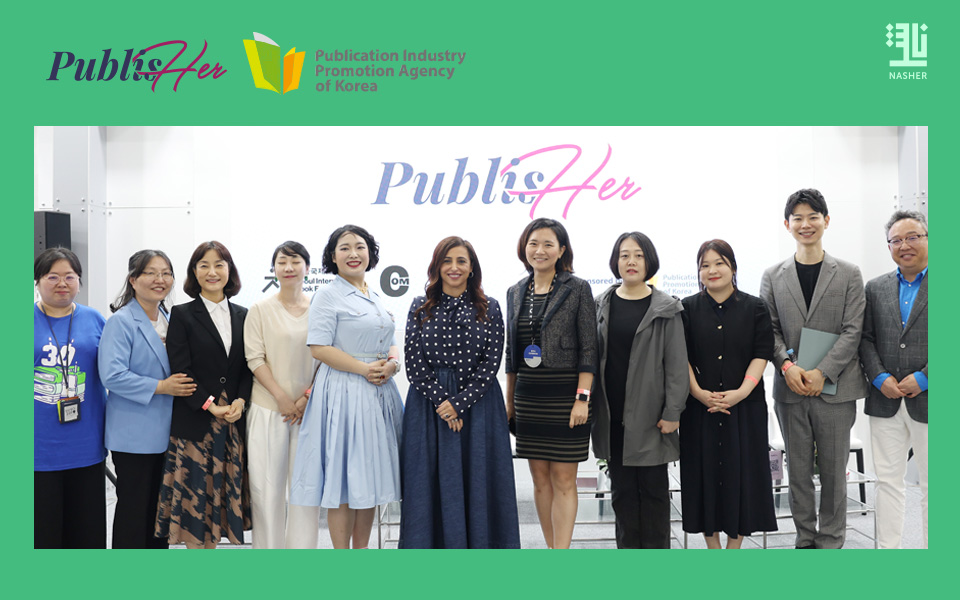Bodour Al Qasimi brings “PublisHer” to South Korea
Bodour Al Qasimi, the CEO of Kalimat Group, has announced the opening of a South Korean Chapter of PublisHer, the pioneering international initiative she founded to support female publishers to rise to leadership in the male-dominated industry.
At the first-ever PublisHer gathering in South Korea, during the 65th Seoul International Book Fair, where Sharjah is being celebrated as the Guest of Honour, Bodour Al Qasimi told her audience she founded PublisHer four years ago so that female publishers could get the recognition and professional success they deserve.
Female publishers are far too often kept out of senior management and leadership positions in a sector that typically employs more women than men. This system didnt make sense to me when I began my career in publishing more than a decade ago, and it still doesnt. Last year, when we launched the PublisHer chapter in Brazil, our colleague Flavia Brevin said shed never had a female boss in her entire career.
The shocking thing is that even in 2023 these stories are not the exception. Thats the reason I started PublisHer, Bodour told the gathering.
This holds true for the South Korean publishing industry as well, where according to a K-Book Trends Report published last year, the general book publishing sector is composed of 4,175 males and 5,356 females, with females accounting for a bigger proportion than males, at 56%.
Against this backdrop, Bodour Al Qasimi introduced the PublisHer platform in South Korea as part of a strategy to amplify the voices of female publishers in the region as they seek to redress gender imbalances, scrutinize current publishing culture and expose unconscious biases, discrimination, and systemic resistance to change.
Im pleased to announce momentum is growing and we are launching a Korean chapter of PublisHer, Bodour added, inviting female publishing professionals to join the movement to create an inclusive system that is free of biases and that promotes equal opportunities for publishers based on their skills, qualifications, and merit.
Bodour Al Qasimi concluded her keynote with an insight she recently encountered in a Fast Company article on female leadership challenges, which said the only way for women to advance in their workplace is to change the culture from We want what you are not to We want what you are.
She added that PublisHer would continue its mission to create a workplace culture where women can advance without having to change who we are or neglect our needs to please an outdated system.
The PublisHer programme in Seoul also organised discussions between leading Korean female publishers, authors, and book critics on ‘The present and future status of female publishers in South Korea’ and ‘How the diversity in human beings can be pursued in literature and illustrated books’.
The PublisHer movement has been building momentum internationally, opening a Brazilian chapter last year, and convening female publishing leaders in Italy, Nairobi, and Kuala Lumpur to discuss challenges, and womens representation in publishing, and to brainstorm creative, viable solutions to achieve the optimal 50:50 male/female ratio in leadership positions in publishing.







